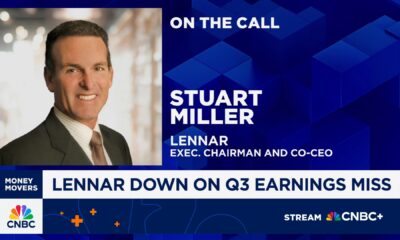Education
Warren Buffett Reveals Insightful ‘Desert Island’ Question for CEOs

Legendary investor Warren Buffett has shared a thought-provoking question aimed at CEOs, which could offer valuable insights into competitive dynamics within industries. During the 2025 annual shareholders meeting of Berkshire Hathaway Inc, Buffett surprised attendees by announcing his intention to step down as CEO at the end of the year. This revelation, while sobering, was accompanied by a wealth of advice aimed at guiding both current and future leaders in the business world.
At the meeting, Buffett proposed a unique question for CEOs to consider when assessing their industry: “If you were stuck on a desert island for 10 years, which of your competitors’ stocks would you buy? And which would you short?” According to a report by Andrew Ross Sorkin from CNBC, this inquiry allows executives to reveal their confidence in competitors while also highlighting potential vulnerabilities in the market.
Buffett explained that this question encourages managers to think deeply about their competition. “Every manager enjoys talking about the competition. They’re like school kids. I probably gained most of my industry insights just by ensuring they didn’t expect me to stick around too long,” he remarked, as noted by Financial Express.
The Significance of Buffett’s Advice
Buffett’s desert island question taps into a familiar concept often posed in casual conversation: what items or forms of entertainment one would choose to have if stranded for an extended period. In the context of investing, this question serves a more strategic purpose. Choosing a stock to hold for a decade, without the option of selling, represents a significant commitment, especially in today’s fast-paced trading environment.
For investors, understanding which stocks a CEO would prefer to own offers clues about which companies are expected to flourish. This could indicate strong growth potential and highlight firms that competitors may view as formidable threats. Conversely, identifying stocks that CEOs would short can uncover weaknesses in rival companies, suggesting areas where market share losses or other challenges may arise.
Buffett’s approach emphasizes the need for long-term thinking in a landscape often dominated by short-term trading strategies. By framing the question in this manner, he encourages a deeper analysis of competitive positions within industries.
Understanding the Broader Implications
While the desert island question presents a unique lens through which to view competition, it should not be confused with Buffett’s earlier commentary on economic indicators. He has previously stated that if he could only access one financial metric while isolated, it would be the number of rail carloads transported, which he believes effectively reflects the health of the economy.
Buffett’s insights continue to resonate with investors and business leaders alike, encouraging them to consider the long-term implications of their decisions. As he prepares to step down, his legacy of wisdom and thoughtful investment strategies remains influential in shaping the future of corporate leadership.
This article has been adapted from content originally published by Benzinga and reflects the latest insights from one of the most respected figures in finance. As always, readers are advised to conduct their own research and consider professional advice before making investment decisions.
-

 Technology5 months ago
Technology5 months agoDiscover the Top 10 Calorie Counting Apps of 2025
-

 Health2 months ago
Health2 months agoBella Hadid Shares Health Update After Treatment for Lyme Disease
-

 Health3 months ago
Health3 months agoErin Bates Shares Recovery Update Following Sepsis Complications
-

 Technology4 months ago
Technology4 months agoDiscover How to Reverse Image Search Using ChatGPT Effortlessly
-

 Technology1 month ago
Technology1 month agoDiscover 2025’s Top GPUs for Exceptional 4K Gaming Performance
-

 Technology2 months ago
Technology2 months agoElectric Moto Influencer Surronster Arrested in Tijuana
-

 Technology5 months ago
Technology5 months agoMeta Initiates $60B AI Data Center Expansion, Starting in Ohio
-

 Technology5 months ago
Technology5 months agoRecovering a Suspended TikTok Account: A Step-by-Step Guide
-

 Health4 months ago
Health4 months agoTested: Rab Firewall Mountain Jacket Survives Harsh Conditions
-

 Lifestyle5 months ago
Lifestyle5 months agoBelton Family Reunites After Daughter Survives Hill Country Floods
-

 Technology4 months ago
Technology4 months agoHarmonic Launches AI Chatbot App to Transform Mathematical Reasoning
-

 Technology3 months ago
Technology3 months agoUncovering the Top Five Most Challenging Motorcycles to Ride





















